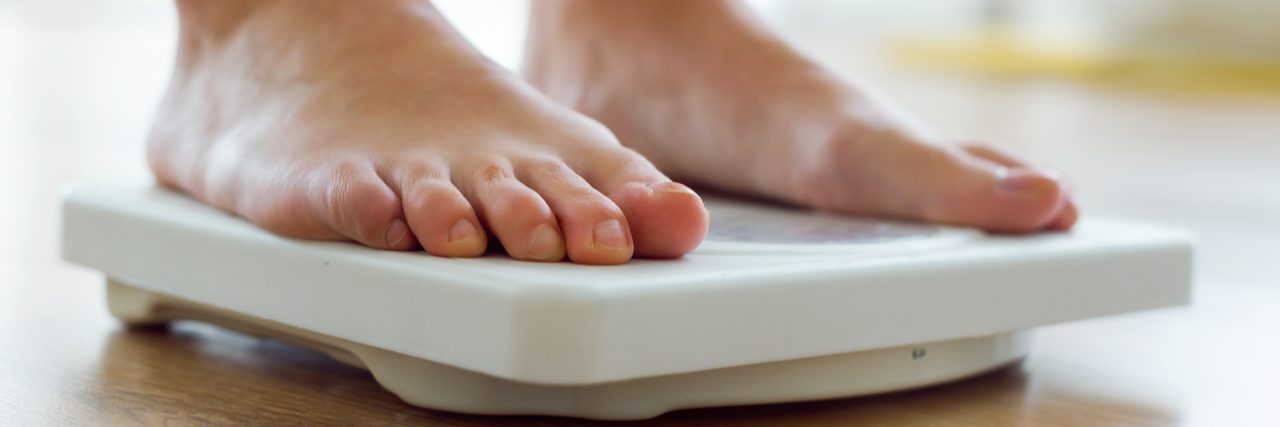I am considered clinically overweight. As a result, I constantly feel too embarrassed, scared, and unsure about discussing my eating disorder with others. People look at me and see a girl with thick thighs, large-set hips, and a belly — they would never expect that I have been struggling with an eating disorder for over 10 years.
My relationship with food can only be described as relentless extremities. I either don’t eat for days at a time or I binge excessively on fast food and sweets. Food is an ally to my self-destructive behaviors.
When I starve, it’s a form of punishment for getting to this weight. “I don’t need to eat and I don’t deserve to. I’m overweight anyway, so this is needed,” I think. I look through Instagram and find girls with thighs that separate when they’re standing, and I never want to eat again.
When I binge, the number on the scale hadn’t dropped fast enough or my stomach hadn’t shrunk at all, so I punish myself again. Apathy washes over me, and I think about how nothing I do matters because I will always be fat, disgusting, and unattractive. Afterwards, I cry for hours because I believe I have to start starving all over again.
Even though these feelings and behaviors are very real for me, I’m still too uncomfortable to admit I have an eating disorder because of what my body looks like. I also question where I belong or if I even fit in the ED community. My weight fluctuates so little that I almost feel disingenuous when talking about these struggles, and unfortunately this is mostly a result of the stigmas and stereotypes that are portrayed with eating disorders. Yet, even knowing that still doesn’t put my mind to rest.
When I was diagnosed with borderline personality disorder, I found comfort in reading personal accounts from people with the disorder and being able to relate to them. It helped by reassuring me I wasn’t alone. I must not just be completely “crazy.” Lacking the ability to identify the same way with ED because of my weight creates a sense of isolation and rejection. I feel like I am too fat to have an eating disorder.
For the last several months, I have attempted to learn body positivity and self-love to recover from both the disorder and my perceptions. Yet, it always creeps back up on me. Recently, I was diagnosed with ADD and prescribed Adderall. Though it helped immensely with my ability to do well in school, I found myself quickly falling in love with the appetite suppression. I cheered as I went longer and longer without eating, and Adderall turned into some supplement to my eating disorder.
I think the worst thing about being fat and dealing with an eating disorder is people’s reaction to weight loss. After a month on Adderall, my weight fluctuated more than it has in years. When I told my friends of my weight loss, they congratulated me, gave me words of encouragement, and even one said, “You’ll be looking so good in no time!” They don’t know how harmful this is to me. I cannot tell them how harmful it is. I am overweight and need to lose weight, so the reaction is that I’m making great progress. The truth is I am slowly regressing to a world of torment, rage, and obsession.
We must work harder to include more diverse narratives. Fat girls can have an eating disorder. Including them and allowing them to feel comfortable openly expressing their thoughts and experiences with this illness could make it easier for them to cope and recover. I know, at least, it would for me.
If you or someone you know is struggling with an eating disorder, you can call the National Eating Disorders Association Helpline at 1-800-931-2237.
We want to hear your story. Become a Mighty contributor here.
Thinkstock photo by nensuria

